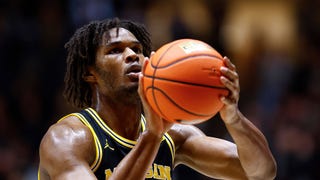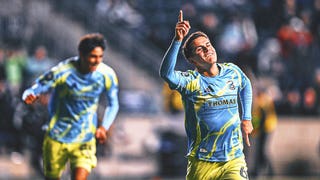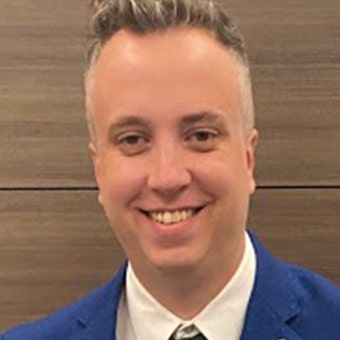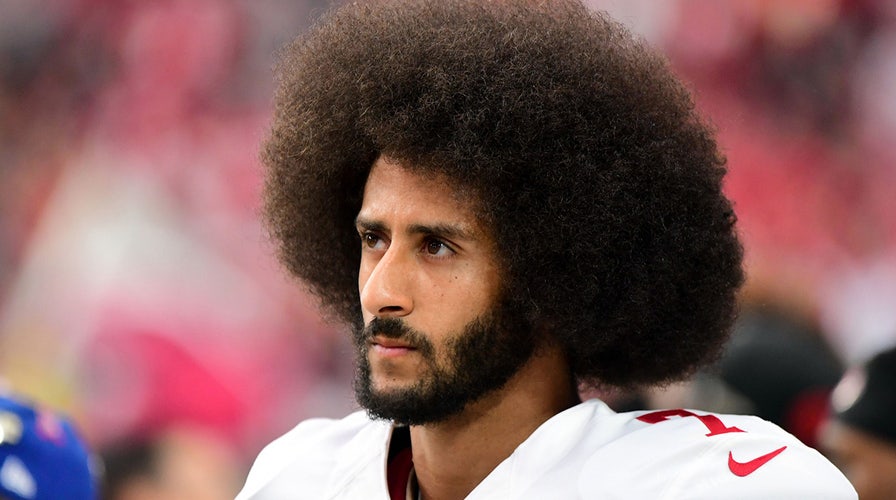Fox News Flash top sports headlines for May 25
Fox News Flash top sports headlines are here. Check out what's clicking on Foxnews.com.
Colin Kaepernick has not played in the NFL since the 2016 season, when he created a firestorm when he kneeled for the national anthem to protest what he believed are racial injustices in the U.S.
Since then, Kaepernick has been at the forefront of social activism, calling for the abolishment of the police and prisons as well as likening the NFL Draft to a slave auction. He accused NFL owners of blackballing him from the league, and after the two sides settled, his two tryouts in front of scouts failed to yield a contract with a team.
CLICK HERE FOR MORE SPORTS COVERAGE ON FOXNEWS.COM
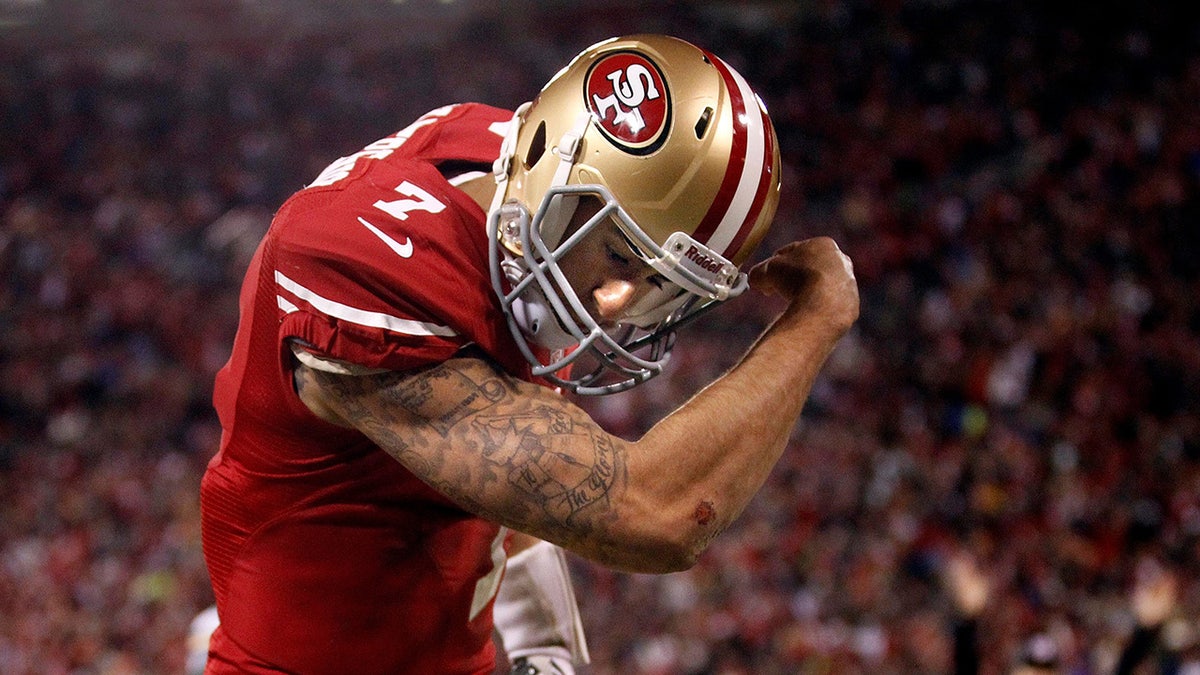
San Francisco 49ers quarterback Colin Kaepernick, #7, flexes his muscles after scoring a touchdown during their 45-31 victory over Green Bay Packers in their NFC Divisional playoff game Saturday, Jan. 11, 2013 at Candlestick Park in San Francisco. (RICK WOOD/MILWAUKEE JOURNAL SENTNEL / USA TODAY NETWORK)
The former San Francisco 49ers star, who led the team to a Super Bowl appearance during the 2013 season, released a graphic novel taking readers through the senior year of high school as he decides whether he wants to continue to play football in college or take a chance at Major League Baseball.
In an interview with NPR on Tuesday, host Juana Summers mentioned to Kaepernick about the last page in the book, where he is seen taking a knee and asked whether he thought the NFL had "changed for the better" since he last played a football game in January 2017.

San Francisco 49ers quarterback Colin Kaepernick, #7, looks on prior to the game against the Arizona Cardinals at University of Phoenix Stadium in Glendale, Arizona, Nov. 13, 2016. (Matt Kartozian-USA TODAY Sports)
"I haven't seen any substantial change," Kaepernick said. "I think there is a lot of work to do on that front. Obviously, not playing and being out of the NFL for six years is an indictment on where they are currently at. So I wouldn't put them at the forefront of goodwill and best of intentions in how they operate."
For what it is worth, the NFL announced earlier this month that the league’s Inspire Change initiative contributions reached $300 million. The league said they and the Players Coalition renewed 15 grant partnerships to "progress in police-community relations, criminal justice reform, education, and economic advancement."
Summers then asked whether Kaepernick thought about what his career would look like if he continued to play in the league or if bowing out of the league was a chance to do something greater.
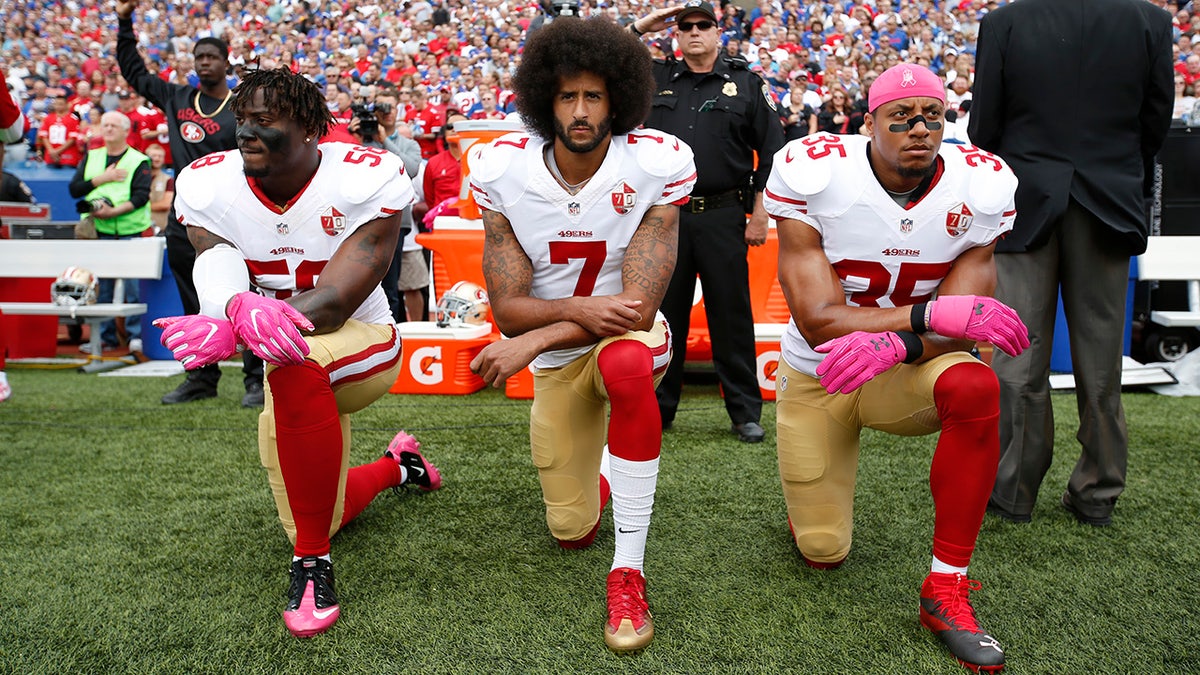
Eli Harold, #58, Colin Kaepernick, #7, and Eric Reid, #35 of the San Francisco 49ers, kneel in protest on the sideline, during the national anthem prior to the game against the Buffalo Bills at New Era Field on Oct. 16, 2016 in Orchard Park, New York. (Michael Zagaris/San Francisco 49ers/Getty Images)
CLICK HERE TO GET THE FOX NEWS APP
"No. I think there's this idea out there that those are mutually exclusive, and I don't subscribe to that," he replied. "So I think people are multifaceted and multitalented. And ultimately, that's something that - we want to make sure that message is being sent as well. We have the opportunity to move forward and not be pigeonholed into singular elements of ourselves."

















